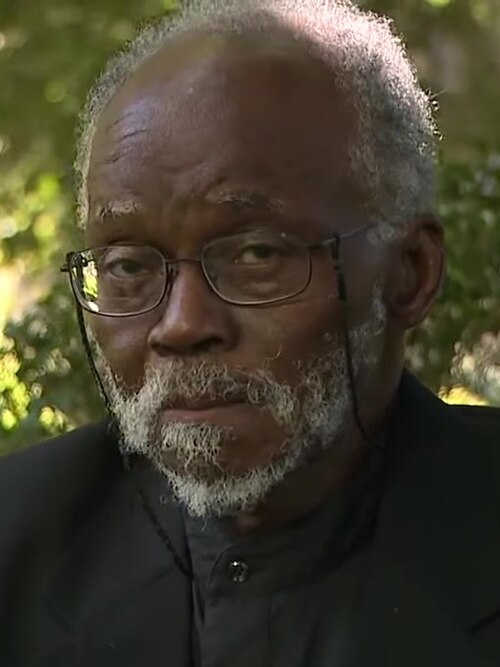
In Memoriam: Mzee Valentin-Yves Mudimbe (1941–April 2025)
A towering figure in African philosophy, postcolonial thought, and decolonial scholarship
About
Mzee Valentin-Yves Mudimbe, the distinguished Congolese philosopher, philologist, and theorist of decolonial thought, passed away last month (April 2025). His death marks the loss of one of Africa’s most incisive and courageous intellectuals—whose writings reshaped global understandings of African knowledge, identity, and representation.
Born in 1941 in Likasi, decolonised from the colonial name Jadotville, in the southeastern Democratic Republic of Congo, Mudimbe’s early formation as a Benedictine monk would evolve into a fierce critique of the religious, academic, and political systems that sought to define Africa from outside itself.
His influential book, The Invention of Africa (1988), remains a cornerstone in African studies, cultural criticism, and postcolonial scholarship. In it, Mudimbe introduced the concept of the colonial library, a term that has become central in debates about how knowledge about Africa is produced, codified, and circulated.
His theory of the colonial library
The colonial library refers to the body of knowledge systems—religious, academic, bureaucratic, and popular—that emerged during colonialism and continue to define Africa through foreign categories. It contains religious texts such as the Bible and Qur’an, anthropological and missionary writings, colonial diaries and reports, administrative documents, academic journals and textbooks, and entire education systems.
Through this library, Africa has been falsely defined as philosophyless, religionless, scienceless, languageless, cultureless, libraryless, worth enslaving, and ripe for colonising. These assumptions were not only imposed by the West but have also been absorbed and perpetuated by Eastern and Middle Eastern powers.
The way Africa is understood from outside is largely wrong because it is viewed through the colonist’s lens. This is a form of epistemic violence: Africa’s knowledge is seen as beneath or outside other knowledges.
Mudimbe argued that to decolonise knowledge and improve Africa’s lived realities—including poverty reduction, dignity, and sovereignty—we must first deconstruct this colonial library. This means dismantling it physically (in institutions and curricula) and metaphorically, as it exists in the minds of Africans, Europeans, Asians, and Arabs alike.
Africa needs intellectual autonomy and must reevaluate how it is known. It must begin to share its true philosophy and knowledge systems with the world.
He warned that colonial frameworks must not be maintained or reproduced, yet today’s tools—including artificial intelligence—are actively reproducing them. “We have to be vigilant, not complacent,” Mudimbe insisted. “We must creatively deconstruct, not reproduce.”
Throughout his academic journey, Mudimbe taught not only at globally renowned institutions like Stanford and Duke University, but also at the National University of Zaire (now renamed University of Kinshasa), where he was instrumental in shaping an African-centred scholarly culture. His commitment to epistemic justice was grounded in the belief that Africa must theorise itself—not as reaction or reflection, but in sovereign voice.
His other major works—The Idea of Africa, Parables and Fables, Tales of Faith — expanded his inquiry into African religion, knowledge and spiritual heritage, always with a view to resisting simplification and colonisation.
Go well Mzee
Nguvu zako za fikra na maono yako ya uhuru viendelee kutuongoza.
Mzee is mourned by family, colleagues, students, and a global community of scholars committed to rebuilding African thought on African terms. His life’s work remains a clarion call: to question the foundations, unsettle the familiar, and refuse the reproduction of colonial knowledge in any form.
Major works
Mudimbe, V.-Y. (1988). The invention of Africa: Gnosis, philosophy, and the order of knowledge. Indiana University Press.
Mudimbe, V.-Y. (1994). The idea of Africa. Indiana University Press.
Mudimbe, V.-Y. (1991). Parables and fables: Exegesis, textuality, and politics in Central Africa. University of Wisconsin Press.
Mudimbe, V.-Y. (1997). Tales of faith: Religion as political performance in Central Africa. University of London, Athlone Press.
Use the form below to subscibe to Owia Bulletin.
Discover more from Africa Social Work & Development Network | Mtandao waKazi zaJamii naMaendeleo waAfrika
Subscribe to get the latest posts sent to your email.


